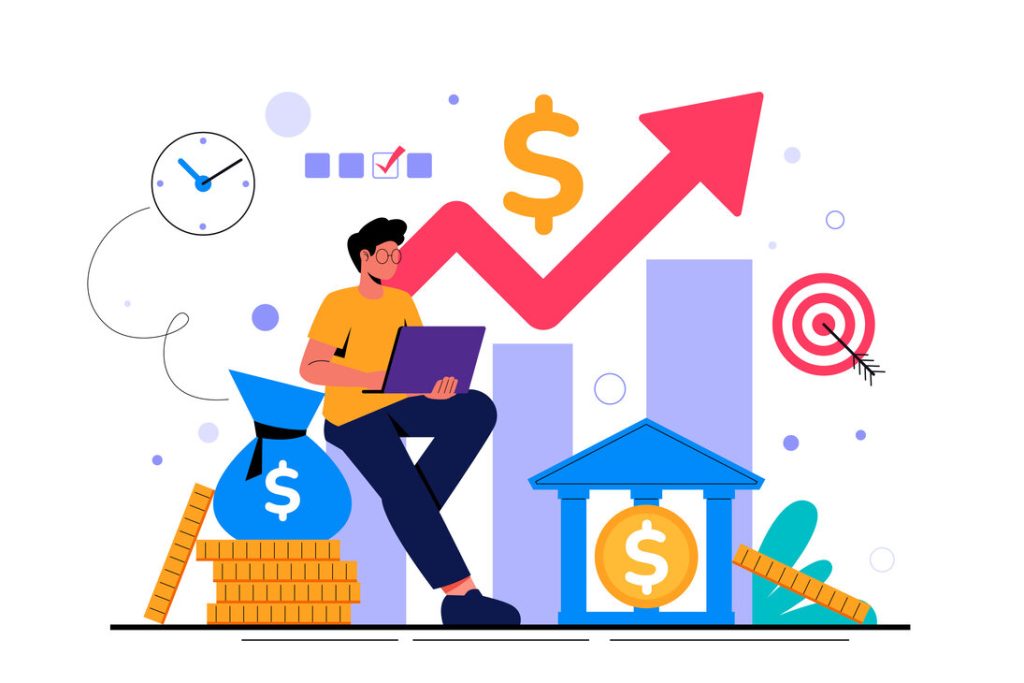
The answer to “What is the best age to start investing?” varies from one person to another. From our perspective, there is no best age to start investing. But we believe starting to invest at a young age has the potential to become financially free at an early age, giving you the leverage to explore the different spices of life.
The youngsters of this generation have provided mixed reactions about achieving financial freedom. In terms of global youth, some of them have already attained financial freedom. While others are still confused due to several challenges. Meanwhile, in India, a thriving number of youngsters are still struggling to meet their financial hardships. Let alone youth; even the adults are burning their midnight oil to maintain the spark.
When it comes to financial well-being, age doesn’t matter. All of us who are experiencing financial hardships are in a similar state. Therefore, those who have attained financial freedom at a young age may now be at ease living their life on their terms. And for those who haven’t, this is the sign to start investing to generate income.
Investing requires a careful understanding of the relevant investment drive and making an informed decision to earn. Let’s identify the suitable investment vehicles to start early investing.
And also learn how early one can start investing to start earning, and we will discuss the relevant investment vehicles suitable for early investing.
Investing is a fundamental concept that involves allocating money or resources to various assets to profit from them. Investing is the process of purchasing an asset such as stocks, bonds, real estate, or other financial instruments in order to earn a positive return on investment. Investing entails more risk and the possibility of greater rewards.
In reality, the right age to invest is now. Many often procrastinate their ability to invest by claiming that they have less capital or are financially unstable. These are the reasons why these individuals are not financially free at the first point.
The key to becoming financially free is starting to invest early. Investing at a young age has the benefit of a compound effect. Early investing has the advantage of higher risk tolerance and cultivating financial habits that pave the way for financial freedom. The earlier you begin investing, the more you learn about the different investment vehicles and the greater the potential to generate high-figure wealth over time.
Early investing can significantly enhance your financial future due to the power of compound interest. It allows the generation of earnings as the investment grows over time. Early investing has the advantage of a longer time horizon to recover from market fluctuations. The earlier you begin investing, the more time money has to grow.
For example, if you start investing ₹1000 every month at age 20, it can grow substantially more by the age of 60 compared to starting the same investment at the age of 40. This is because of the power of compounding over a longer period.
Having huge capital has the leverage to generate more profits. But not everyone has the advantage of huge capital. Therefore, invest early with a small investment to potentially increase the wealth over time. At the same time, it is crucial to understand the core of the investment drive to make successful profits.
Let’s explore the suitable investment vehicles to start at a young age.
Investing money at any age requires learning and understanding the investment drive and deriving financial goals and an investment plan. Staying up to the objectives and goals is the key to maintaining consistent investment decisions for better profits.
Identifying the right investment drive can be challenging, especially at a young age. Therefore, it is advised to learn the landscape of the different investment drives and choose what is best for you.
At the same time, we have prepared a guide navigating the investment vehicles and how to invest in these plans at a young age. Here’s a guide to where and how to invest your money when you’re just starting:
Before starting to invest, set up a solid foundation for an emergency fund. with three to four months of living expenses in a high-yield savings account. This practice ensures recovery from any unexpected expenses due to unforeseen circumstances.
Investing in the stock market means buying a company’s stock to profit from it. Early stock market investment has the potential to yield returns because the stock market has been rising over the years. Invest in stocks at a young age to balance the market fluctuations.
Mutual funds are an investment pool of stocks managed by fund managers. This may have lower risk and higher or moderate returns compared to personal stock market investments. The fund managers handle everything, so there is no need for frequent monitoring or analysis.
Real estate investment is the process of purchasing properties and selling them for profit in the future. Investing in real estate from a young age is a strategic move to build wealth and earn passively. Real estate investment involves understanding the concepts of real estate, budgeting, planning, and financing.
Investing in retirement accounts at an early age can significantly bring financial security in the long run. Retirement fund plans include the Public Provident Fund, the National Pension System, and many others. Understanding different types of plans and continuous learning is crucial while investing early in retirement accounts.
ETFs are investment funds that trade on stock exchanges. ETFs include a diverse portfolio of assets, including stocks, bonds, or commodities. Choosing the right ETFs is crucial to minimising expense ratios. understand the nature of ETFs by considering liquidity, performance, tracking error, and others to identify the best ETFs.
Spread your investment across various investment vehicles and a variety of assets, securities, bonds, and ETFs. Diversifying your investment reduces the impact of losses. Moreover, it can balance your investment portfolio.
Make consistent investments at every predetermined interval. Consistent contribution will help take advantage of the power of compounding to increase your wealth portfolio.
Stay updated to the market condition, economic situation, and geopolitical events. Make necessary changes by adapting to the market conditions. Make informed decisions in respect to the favor of the market.
Early investing promotes numerous benefits. Some of the benefits of early investing are given below:
Investing at a young age ensures a secure financial future. Investing for the long term has the potential to increase wealth.
Starting to invest early allows you to diversify your investment portfolio by spreading the investment throughout different assets, securities, and bonds in the long run.
Investing money for longer periods has the advantage of compound interest. The initial investment is expected to grow through the power of compounding.
Experience in the investing process helps you to develop investing strategies, such as developing your style of investment approach.
Starting early helps to foster disciplined investing and saving habits; maintaining regular investments encourages and improves investment portfolios.
This guide, “What is the best age to start investing?” provides step-by-step instructions on starting investing at a young age for a secure financial future and diversification of portfolios. Building a solid foundation, such as an emergency fund and high-yield savings account, is essential.
Various investment vehicles, such as stocks, mutual funds, real estate, retirement accounts, and exchange-traded funds, can be explored. The relevant investment schemes can be started by going through the respective process. For example, stock investment can be done by opening a Demat account with a trusted broker.
Early investing leads to financial freedom, disciplined savings, and compounding power. Continuous learning and adapting to market conditions are crucial for a successful trading experience.
Disclaimer: The information provided in this blog is for educational and informational purposes only and should not be considered as financial or investment advice. Stock market investments are subject to market risks, and past performance is not indicative of future results. Readers are encouraged to do their own research and consult with a licensed financial advisor before making any investment decisions. The author and publisher are not liable for any financial losses or damages incurred from following the information provided in this blog.

Ibnu Jala
Ibnu Jala is an experienced professional in the financial markets of India and the Middle East, renowned for his trading expertise and mentorship. His passion for neuroscience drives his research, blending finance and science seamlessly. With a Bachelor’s in Law from India and an MBA from the UK, Ibnu Jala has a diverse academic background. In addition to being a seasoned investor and serial entrepreneur, he currently leads FinQuo Versity as its CEO.
